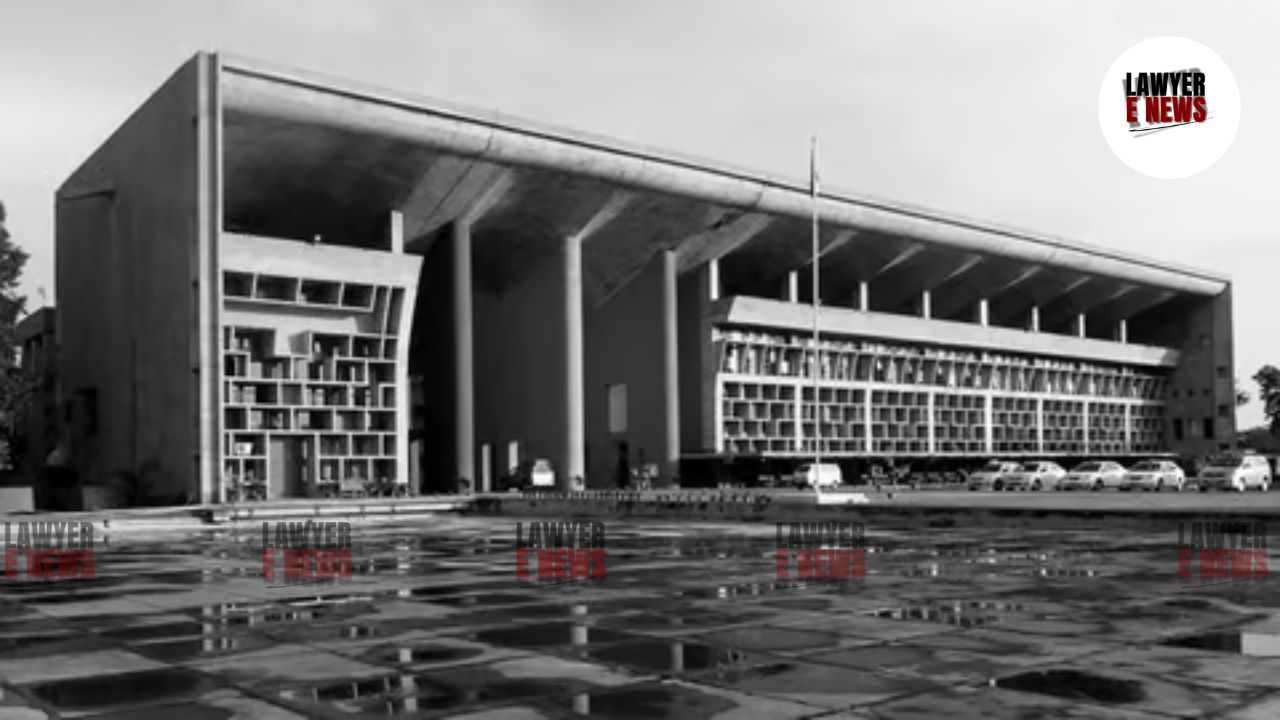-
by Admin
15 February 2026 5:35 AM



Punjab and Haryana High Court setting aside the auction sale of the appellant's property due to serious procedural irregularities in the execution proceedings. Justice Deepak Gupta ruled that the lack of compliance with mandatory provisions of the Code of Civil Procedure (CPC), including those concerning service of notice, proclamation, and sale procedures, rendered the auction sale invalid.
The court's decision underscores the importance of strict adherence to procedural safeguards during the execution of decrees, particularly when they involve the forced sale of immovable property.
The case revolved around the auction sale of a rice mill and property owned by M/s Sherpur Rice Mills (JD No. 2) to recover an arbitral award of ₹55.78 lakh plus interest, passed in favor of the decree-holder, Punjab State Grains Procurement Corporation Ltd. (PUNGRAIN). The appellant contested the confirmation of the sale, arguing that the auction was conducted in violation of mandatory provisions under Order XXI of the CPC.
Arbitral Award: On January 9, 2018, an arbitral award was made in favor of PUNGRAIN, requiring the judgment debtors (JD No. 1 - M/s Noor Agro Industries and JD No. 2 - M/s Sherpur Rice Mills) to pay ₹55,78,102 along with 12% interest.
Execution Petition: PUNGRAIN filed an execution petition before the Additional District Judge, Sangrur, seeking recovery of the award. JD No. 2 was proceeded against ex parte on December 7, 2019, after being served via substituted service.
Auction Sale: The executing court conducted the auction sale of JD No. 2’s property (5 bigha 18 marla land and the rice mill) on February 21, 2023, for ₹1.75 crore, which was confirmed in favor of the auction purchaser (Respondent No. 3).
Objections by JD No. 2: The appellant filed objections under Order XXI Rule 90 CPC, arguing that the auction sale was vitiated by procedural irregularities, including invalid service, improper proclamation, lack of valuation, and failure to consider whether the sale of a portion of the property could satisfy the decree.
The court held that the service of notice upon JD No. 2 was invalid under Order V Rule 20 CPC (substituted service). The decree-holder failed to provide correct addresses, despite having access to documents that showed the judgment debtor's residence in Dhuri. The court emphasized:
"Service substituted by publication in a newspaper without establishing that the judgment debtor was evading service or that ordinary service was impractical is invalid."
This failure rendered the subsequent ex parte proceedings unsustainable.
The court found that the sale proclamation violated mandatory requirements under Order XXI Rules 54, 66, and 67 CPC. Specifically:
Proclamation by Munadi: The executing court failed to ensure the proclamation of sale through beat of drum (munadi) or any customary mode. This omission was evident from the absence of a munadi report in the court record.
Incomplete Proclamation Details: The sale proclamation did not include an accurate valuation of the property, nor did it specify whether the sale of a portion of the property could satisfy the decree, as required under Order XXI Rule 64 CPC.
The court emphasized the importance of proper proclamation in ensuring transparency and fetching a fair price for the property.
The executing court failed to consider whether the sale of only a portion of the property could satisfy the decree. The court observed:
"The executing court must assess whether the sale of a part of the attached property would be sufficient to satisfy the decree. Selling the entire property without such an assessment is a clear violation of Order XXI Rule 64 CPC."
Citing precedents, including Ambati Narasayya v. M. Subba Rao and S. Mariyappa v. Siddappa, the court held that the sale of the entire property, when only a part was necessary, amounted to material irregularity.
The court held that the procedural irregularities caused substantial injury to the appellant. The attached property, including a functioning rice mill, was sold for ₹1.75 crore without a reliable valuation. The appellant contended that the property was worth significantly more, and the absence of competitive bidding due to lack of proper proclamation prevented the property from fetching its fair market value.
The court allowed the appeal and set aside the auction sale and its confirmation. It directed the executing court to recommence the execution proceedings from December 7, 2019, after ensuring proper service upon JD No. 2 and strict compliance with the mandatory provisions of Order XXI CPC.
This judgment reinforces several key principles governing execution proceedings:
Strict Compliance with Order XXI CPC: The judgment underscores the importance of adhering to procedural safeguards in execution proceedings, particularly those involving the sale of immovable property.
Service of Notice: Proper service of notice is essential to ensure the judgment debtor's participation and protect their rights.
Transparent Auction Process: Proclamation of sale and proper valuation are mandatory to ensure competitive bidding and protect the interests of all parties.
Proportionality in Sale: Courts must assess whether the sale of a portion of the attached property is sufficient to satisfy the decree, thereby minimizing unnecessary hardship to the judgment debtor.
Date of Judgment: January 7, 2025
